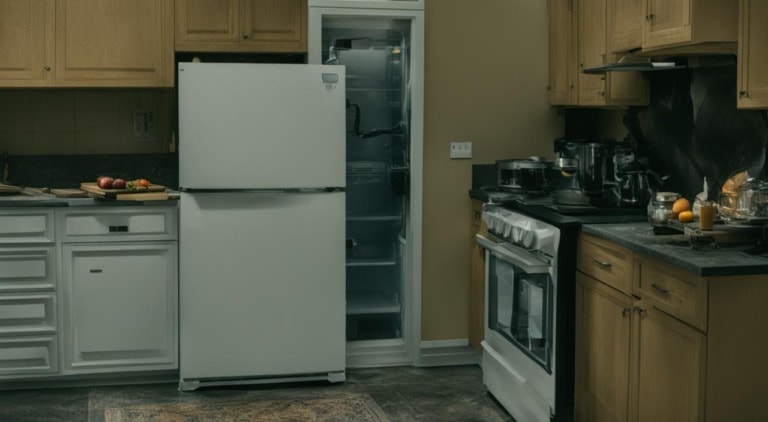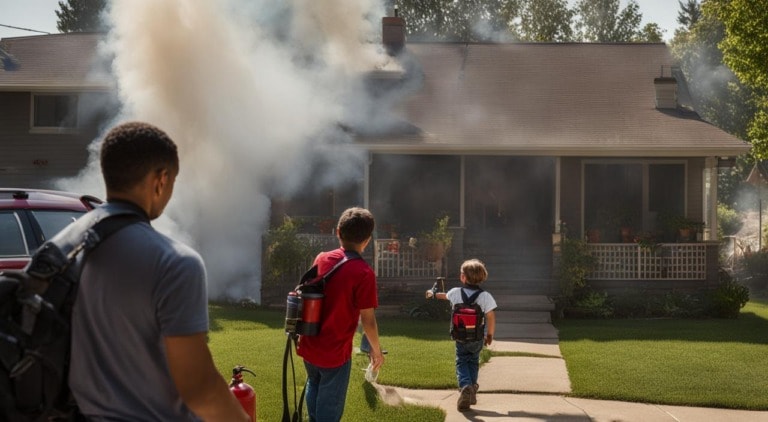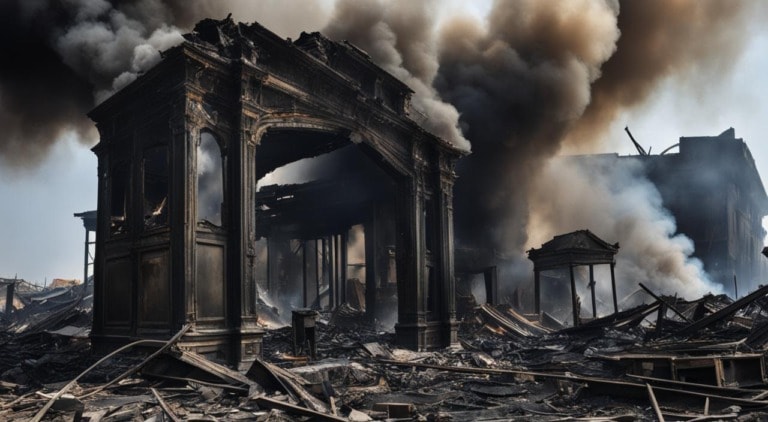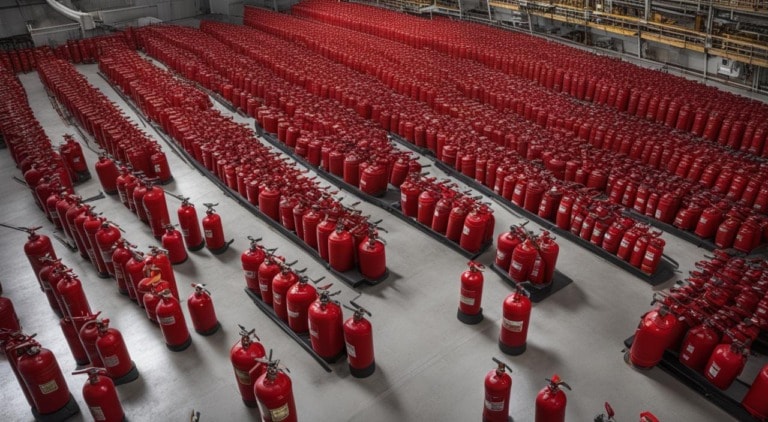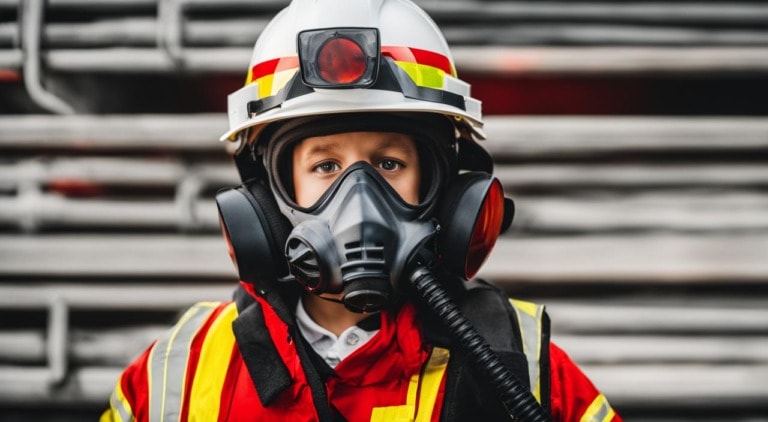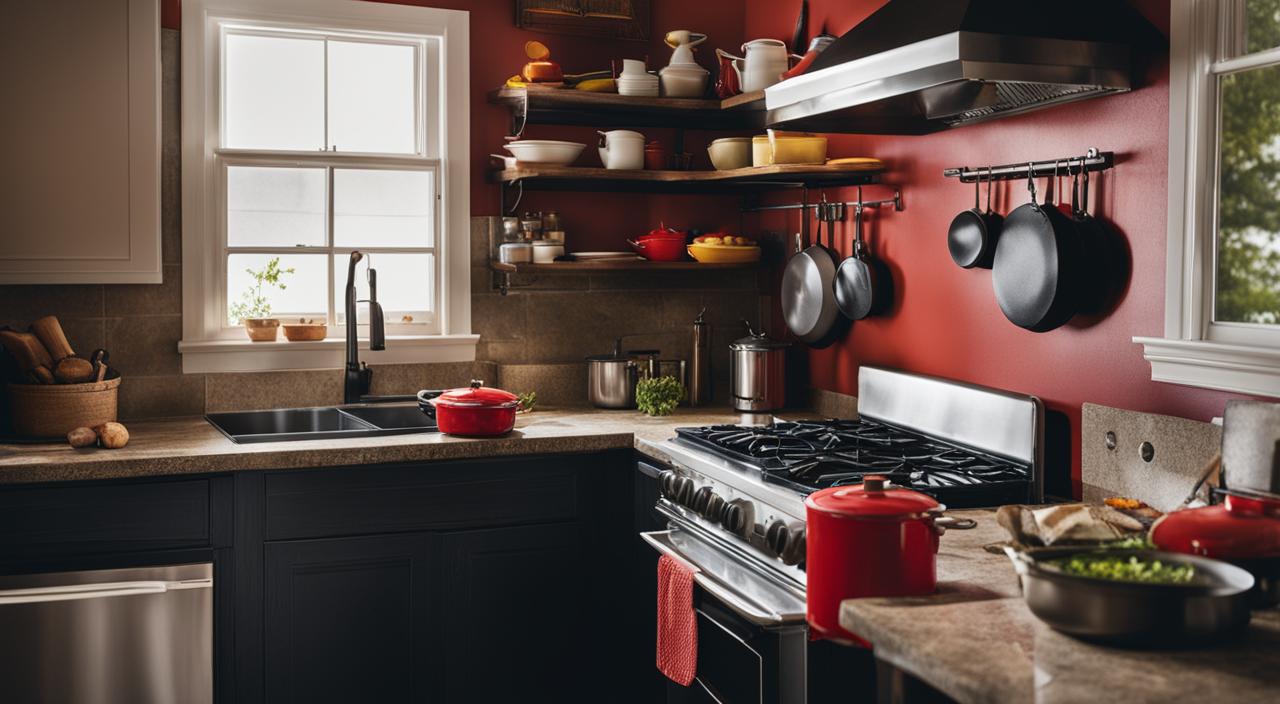
Fire prevention and home fire safety are crucial in reducing the risk of fires in residential properties. Taking proactive measures to protect your home and loved ones is essential. By implementing fire prevention strategies, you can create a safer living environment.
In this article, we will discuss effective ways to prevent fires at home and minimize the potential for fire-related incidents.
According to the American Red Cross, home heating is one of the leading causes of fires in the country.
During the winter months, it is essential to be cautious when using heaters, fireplaces, and other heating sources. Keeping heaters at least three feet away from flammable materials and never leaving a fire unattended in the fireplace are crucial fire prevention measures.
Space heaters should be placed on nonflammable surfaces, and it is important to avoid using cooking ranges or ovens for heating purposes.
Additionally, remember to turn off portable space heaters when not in use. In the event of a power outage, use flashlights instead of candles and exercise caution when using generators to prevent carbon monoxide poisoning.
Electrical hazards can also pose a significant risk of fire. Unplugging electronics when not in use or using surge protectors can help prevent electrical fires. Regularly inspecting cords for any signs of damage and monitoring wall outlets for malfunctions is crucial.
Cooking fires are common and can be prevented by practicing safe cooking habits. Avoid leaving the kitchen unattended while cooking with oil or grease-producing foods. Properly maintaining a clean cooking environment and disposing of combustible materials can significantly reduce the risk of cooking-related fires.
Keeping a clean and organized home is essential for fire prevention. Clutter can increase the risk of fires and hinder evacuation in case of an emergency. Regular decluttering and proper storage of flammable materials, such as firewood and leaves, can help mitigate fire hazards.
Regular maintenance of heating systems and professional inspections of furnaces are crucial to ensure they are functioning safely and reduce the risk of fires. By implementing these fire prevention strategies and practicing home fire safety, you can create a secure living space for you and your family.
Be Mindful of Electrical Hazards
When it comes to fire prevention at home, it is crucial to be aware of potential electrical hazards. Taking simple precautions can greatly reduce the risk of electrical fires and keep your home safe. Here are some important tips to follow:
1. Unplug Electronics
One of the easiest ways to prevent electrical fires is to unplug electronic devices when they are not in use. Many appliances and gadgets continue to draw power even when turned off, contributing to the risk of electrical overload and potential fires. Make it a habit to unplug devices such as laptops, chargers, and small kitchen appliances when they are not actively being used.
2. Check for Damaged Wiring
Frayed or damaged electrical cords can increase the likelihood of electrical fires. Regularly inspect cords for any signs of wear and tear, such as exposed wires or melted insulation. Replace damaged cords immediately and avoid using extension cords as a long-term solution. Additionally, keep an eye out for flickering lights, sparks, or the smell of burning plastic, as these may be indications of faulty wiring that should be addressed by a professional electrician.
3. Use Surge Protectors
Surge protectors are an effective way to safeguard your electronics from power surges and reduce the risk of electrical fires. This device acts as a barrier between your devices and electrical outlets, diverting excess voltage away from your electronic equipment. Be sure to invest in high-quality surge protectors and follow the manufacturer’s instructions for proper usage.
By being mindful of electrical hazards and implementing these safety measures, you can greatly reduce the risk of electrical fires in your home. Remember, it’s always better to prevent a fire than to deal with the devastating consequences it can bring.
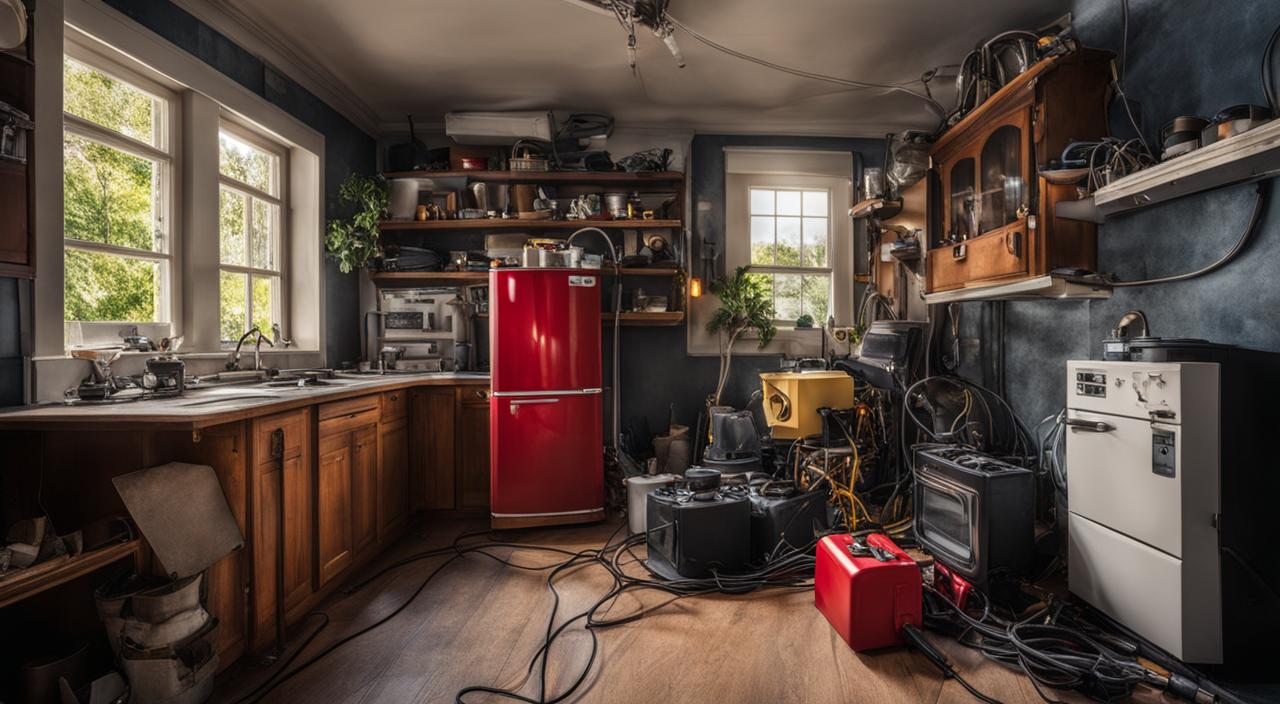
Practice Safe Cooking and Smoking Habits
When it comes to fire prevention at home, practicing safe cooking and smoking habits is crucial. Cooking fires are one of the most common types of house fires, often caused by overheated grease. To prevent cooking fires, it is essential to never leave the kitchen unattended when cooking with oil or grease-producing foods. Always stay vigilant and keep a watchful eye on the stove or oven.
Key Tips for Cooking Fire Prevention:
- Never leave the kitchen unattended when cooking with oil or grease-producing foods.
- Maintain a clean cooking environment and regularly dispose of combustible materials.
- Use caution with portable cooking appliances and ensure they are placed on stable surfaces away from flammable items.
In addition to cooking, smoking poses its own fire risks. To practice smoking safety, it is important to smoke in well-ventilated areas to prevent the accumulation of smoke and potential fire hazards. Always make sure cigarettes are fully extinguished before disposal and use appropriate ashtrays or designated smoking areas.
Key Tips for Smoking Safety:
- Smoke in well-ventilated areas to reduce the risk of smoke accumulation.
- Ensure cigarettes are fully extinguished before disposal.
- Use appropriate ashtrays and avoid smoking in bed or near flammable materials.
Lastly, it is crucial to watch flames and keep flammable items away from heat sources. This includes keeping curtains, paper, and other combustible materials a safe distance from open flames or hot surfaces. It is better to be proactive and take precautions to minimize fire risks in the home.
By following these fire prevention measures and staying mindful of safe cooking and smoking habits, you can significantly reduce the risk of fires at home. Always prioritize the safety of yourself and your loved ones by being cautious and responsible in the kitchen and when smoking.
Keep a Clean and Organized Home
Keeping a clean and organized home is not only visually appealing but also crucial for fire safety. Clutter can significantly increase the risk of fires and impede a quick evacuation in case of an emergency. Therefore, it is essential to regularly declutter and maintain clean living space.
One important aspect of fire prevention is the safe storage of flammable materials. It is vital to keep items such as firewood, leaves, and other combustible materials away from the exterior of the home. These materials can easily ignite and contribute to the spread of flames. Properly storing and containing flammable substances like gas and cooking oil is equally important to minimize the risk of fires.
In addition to clutter reduction and secure storage, regular maintenance and professional inspections of heating systems and furnaces are crucial. Ensuring that these systems are functioning safely can significantly reduce the risk of fires caused by faulty equipment or overheating. It is advisable to schedule regular inspections and follow maintenance guidelines provided by manufacturers.
By adopting these practices, you can create a safe living environment for you and your family. A clean and organized home not only promotes fire safety but also provides peace of mind, knowing that you have taken important steps to prevent potential fire hazards.

